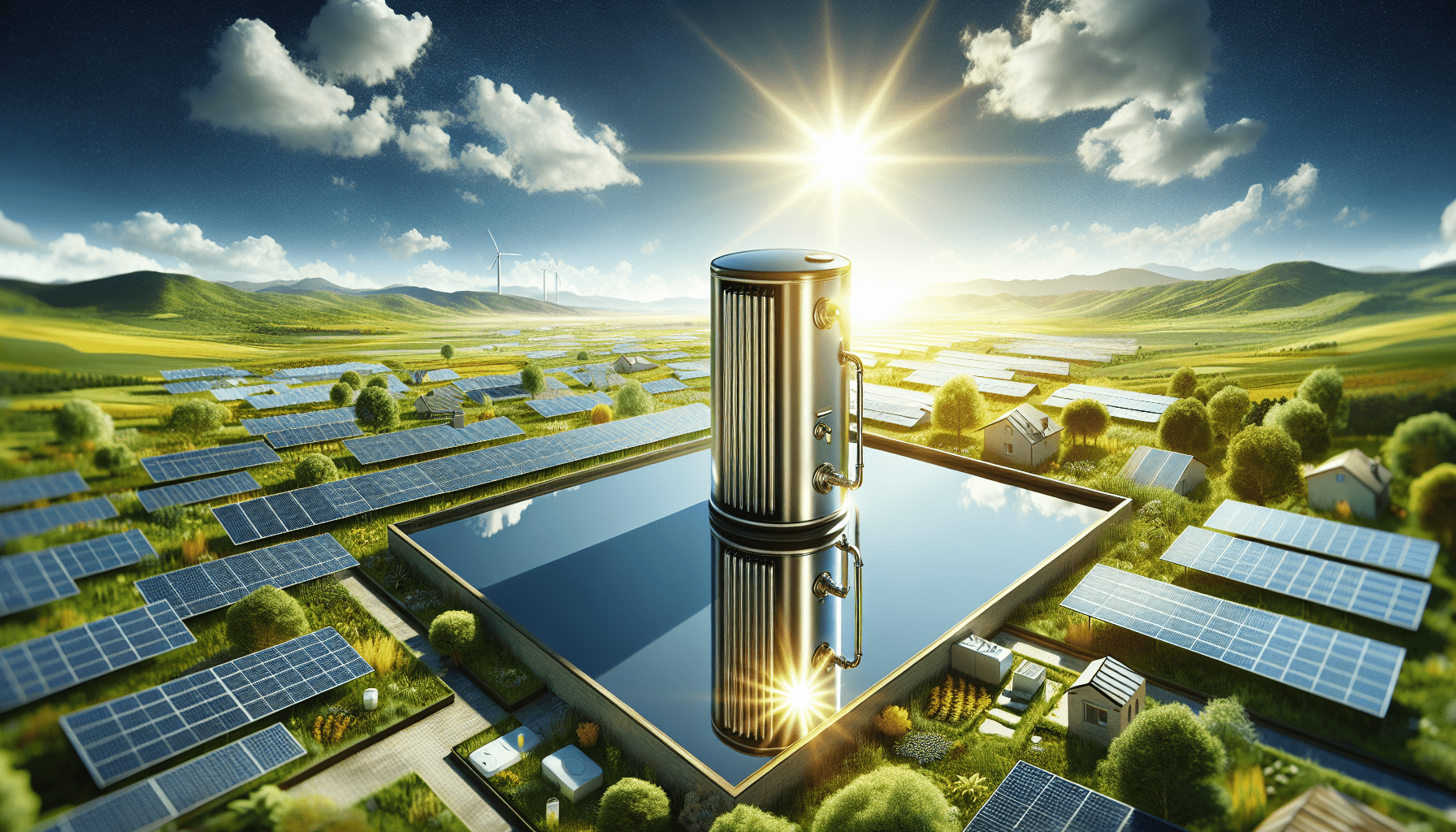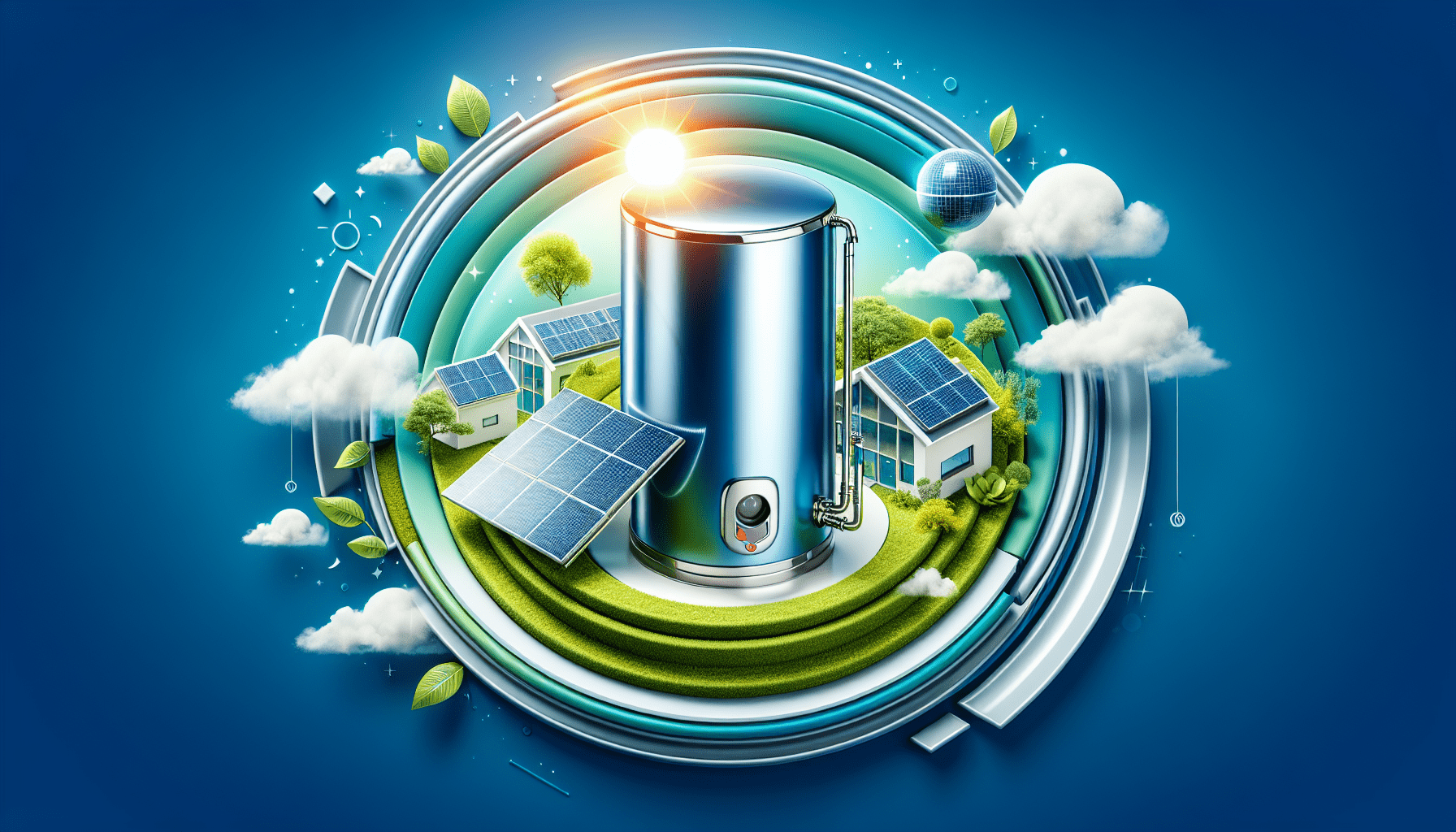Have you ever considered how much energy you could save by harnessing the sun’s rays to heat your water? The idea of installing a solar water heater might sound appealing, and you’re not alone in this thought. Many homeowners are turning to this eco-friendly solution, but there are several factors to consider before you take the plunge. In this article, we’ll walk through everything you need to know about installing a solar water heater, ensuring you’re well-prepared for this transformative project.

What Is a Solar Water Heater?
Solar water heaters work by capturing sunlight to heat water, using either active or passive systems. The active system typically involves pumps and controls, while passive systems rely more on thermosiphoning (a fancy word for the natural movement of hot water). Isn’t it interesting how nature can lend a hand to modern technology?
How Does It Work?
A solar water heating system generally consists of solar collectors, a storage tank, and a circulation system. Here’s a quick breakdown:
-
Solar Collectors: These are usually mounted on your roof and absorb sunlight, converting it into heat. The more collectors you have, the more water you can heat.
-
Storage Tank: Once heated, the water is stored for use. Tanks can hold water to prepare for peak usage times.
-
Circulation System: A pump (in active systems) circulates water through the collectors and back to the tank. In passive systems, hot water rises naturally – the less mechanical you need, the less that can go wrong.
Benefits of Solar Water Heating
Adopting a solar water heater in your home comes with myriad benefits. You’re not just saving money on energy bills; you’re also doing your part in reducing carbon footprints. Here’s a closer look:
Cost Savings Over Time
Though the initial installation can be a bit pricey—compared to traditional systems—the long-term savings are often worthwhile. Imagine slashing your water heating bill by 50% or more! It’s a liberating thought, isn’t it?
Environmentally Friendly
Using solar energy means you’re choosing a clean, renewable source which greatly reduces greenhouse gas emissions. You can bask in the satisfaction of contributing positively to the environment—who would have thought that taking a shower could be so fulfilling?
Increased Property Value
Homes equipped with solar water heating systems could see an increase in property value. Prospective buyers tend to find energy-efficient homes more appealing. This means an investment in solar water heating could pay off not only in energy savings but also when it comes time to sell.
Choosing the Right System
So, how do you decide on the right solar water heating system for your home? It’s not just about the prettiness of the collectors, although that is certainly a consideration. You must understand your specific needs.
Active vs. Passive Systems
Both systems have their pros and cons. Here’s a quick table to help you weigh the options:
| Features | Active System | Passive System |
|---|---|---|
| Cost | Higher initial cost | Generally lower initial cost |
| Efficiency | More efficient in colder climates | May not work well in all climates |
| Maintenance | Requires more maintenance | Easier to maintain |
| Lifespan | Typically lasts longer | Slightly shorter lifespan |
Collector Types
You’ll also want to consider the type of collector. The two major types are flat-plate collectors and evacuated tube collectors. Here’s what you need to know:
-
Flat-Plate Collectors: These are best for moderately sunny areas. They’re generally less expensive, but slightly less efficient when temperatures drop.
-
Evacuated Tube Collectors: These perform excellently in cloudy weather and are ideal for colder climates. However, they do come at a higher price point.

Evaluating Your Energy Needs
Before you rush to install that solar water heater, take a moment to reflect on your energy needs. Assessing your usage can prevent you from overestimating or underestimating what you require.
Daily Hot Water Usage
How much hot water does your household need daily? Take a pen and paper and jot down the average usage for each family member. Think about the weekends when you might take longer showers or run the dishwasher more frequently.
Sizing Your System
The size of the solar water heating system depends on various factors, including your daily hot water needs and the local climate. Generally, the recommended system size for an average family ranges from:
- 120-180 gallons for an active system
- 80-120 gallons for a passive system
Installation Considerations
Now that you’ve weighed the benefits and assessed your needs, it’s time to think about the installation process. This phase often intimidates homeowners, but you’re armed with the right knowledge to navigate it confidently.
Finding a Reputable Installer
The installation is no small feat. While some skilled DIY-ers might tackle it themselves, a professional installer could offer invaluable expertise—ensuring everything is set up correctly. Look for companies with good reputations, positive customer reviews, and proper licensing and insurance.
Permits and Regulations
Before diving into installation, check your local policies about solar water heaters. Some areas might require permits, while others offer incentives for installations. You should ensure you’re complying with local regulations, as this could save you from headaches down the line.
Installation Timeframe
Typically, an installation can take anywhere from a couple of days to a week. It often depends on factors like system complexity and size. Plan accordingly, making sure you have alternative hot water solutions available, especially if you’re removing an existing system.
Maintenance Tips
Congratulations! You’ve successfully installed your solar water heater. However, that’s just the beginning. Regular maintenance ensures your system continues running smoothly.
Routine Inspections
Regular checks will help you catch any issues before they become significant problems. Inspect for leaks, check the altitude of the collectors, and examine the condition of your storage tank. A little routine care can go a long way!
Cleaning the Collectors
Dust and debris can accumulate on collectors, reducing efficiency. A simple cleaning every few months with mild soap and water can restore their ability to absorb sunlight effectively. Just take care not to scratch the surface!
Seasonal Considerations
In winter, ensure your system is winterized if you live in a colder climate. Freezing temperatures can damage your system, so take necessary precautions, like draining the system or utilizing anti-freezing solutions.
Troubleshooting Common Problems
Even with proper maintenance, problems can still arise. No need to panic; many issues are relatively easy to troubleshoot.
Water Temperature Issues
If the water isn’t reaching your desired temperature, check the following:
- Is the thermostat set correctly?
- Do the collectors have any obstructions?
- Are the pumps functioning properly?
Leaks
If you notice a leak, it’s crucial to address it rapidly. Check the connections and seals. Tightening a few bolts or replacing a valve may do the trick, but if it’s a more significant issue, don’t hesitate to call a professional.
Reduced Efficiency
Notice a dip in performance? Cleaning the collectors or inspecting the pump and pressure valves might just restore that efficiency you once enjoyed.
The Life Cycle of Your Solar Water Heater
Wondering how long your solar water heater will last? Well, it depends on several factors, including the type of system and the level of maintenance you provide.
Average Lifespan
On average, solar water heating systems can last between 15 to 25 years, with solar collectors having an average life expectancy of around 20 years. The type of collector and building materials can affect this lifespan as well.
Upgrades and Replacements
As technology advances, older systems may become less efficient compared to newer models. If your system is nearing the end of its life or isn’t performing well, you might want to consider upgrading to a more efficient model.
Financial Incentives for Solar Water Heater Installation
Embracing solar technology often feels like a hefty investment upfront, but several financial incentives can ease the burden on your wallet.
Federal and State Tax Credits
In many countries and regions, tax credits for solar water heater installations can significantly offset costs. Check available credits, as they can work wonders for your budget.
Utility Rebates
Certain utility companies offer rebates for solar water heaters. Inquire about these programs. Even small rebates can accumulate into substantial savings, making your investment more appealing.
Conclusion
Installing a solar water heater is not a task to take lightly, but with the right knowledge and preparation, it can be an incredibly rewarding decision. You have the power to harness the sun’s energy, reduce your ecological footprint, and save money in the long run.
As you consider this option, remember to evaluate your needs thoroughly, choose a reputable installer, and prepare for proper maintenance to enjoy a reliable, efficient system. The world of solar water heating can be an adventure—and the journey started with that simple question about saving energy. Here’s to your energy-efficient future!

